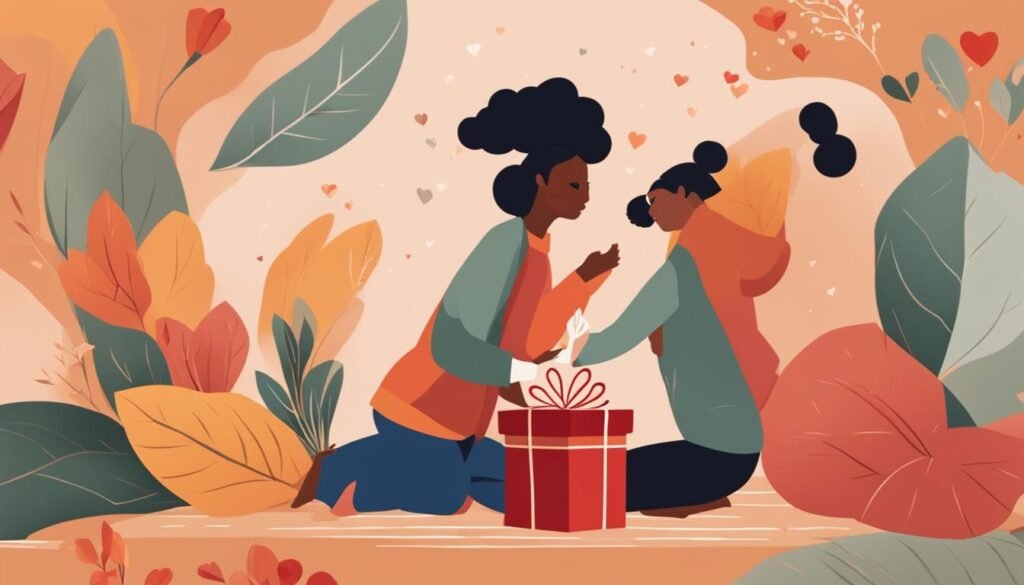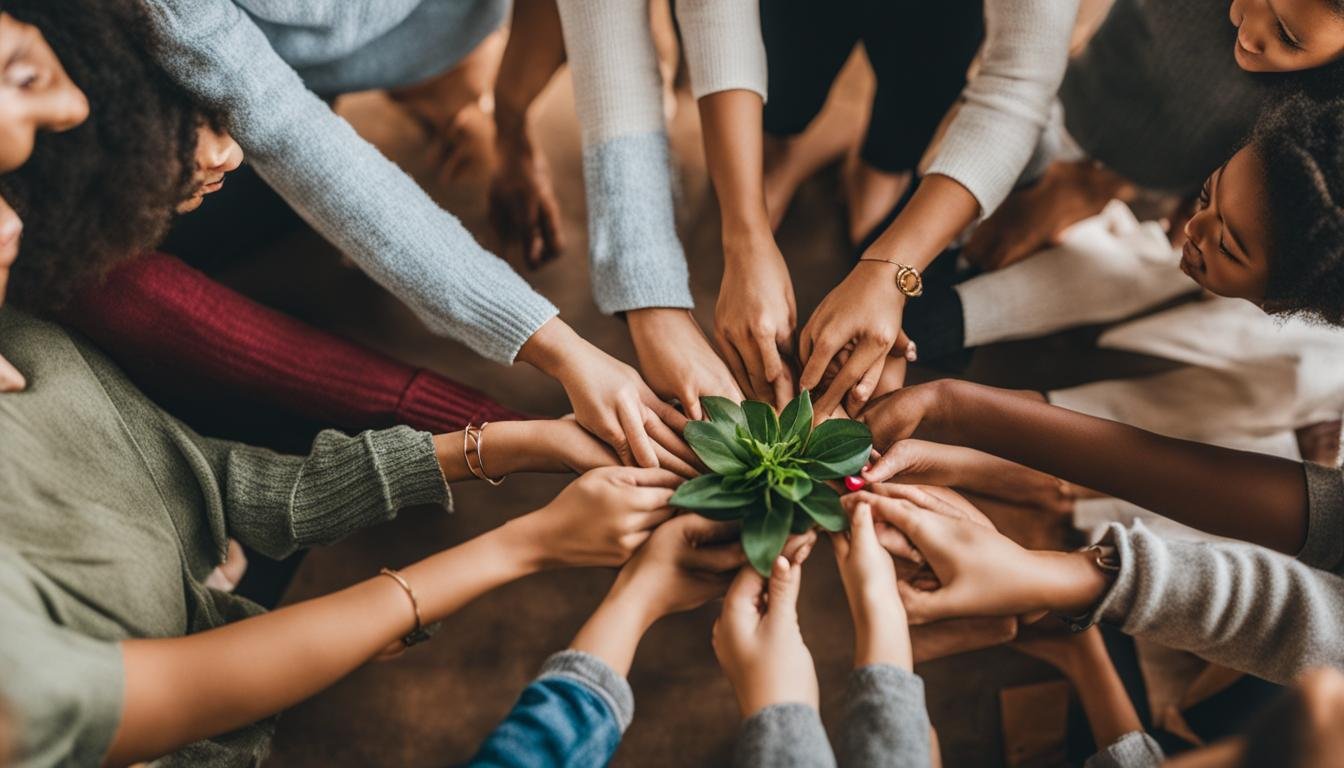Love languages have become a buzzword in romantic relationships, but do they apply to friendships? Platonic relationships can greatly benefit from the understanding and application of love languages as much as romantic relationships. In this article, we will explore the concept of love languages in friendships and how understanding them can deepen connections and enhance overall well-being.
By the end of this article, you will have a better understanding of love languages and how to use them to improve your friendships.
Key Takeaways:
- Love languages can be applied to friendships as much as romantic relationships.
- Understanding your friend’s love language can deepen the bond between you.
- Using love languages can improve communication and create more fulfilling friendships.
- Each friendship may require a unique adaptation of love languages to strengthen the bond.
- Applying love languages in friendships can enhance overall well-being and create meaningful connections.
Understanding Love Languages for Friendships
Love languages aren’t just for romantic partners. Friendships can benefit from understanding and applying love languages too. Here we will explore the five love languages and how they can be used to build and strengthen friendships.
| Love Language | Description | Examples of how to use it in friendships |
|---|---|---|
| Words of Affirmation | Expressing affection through spoken or written words | Sending a text or writing a note to let your friend know how much you appreciate them |
| Acts of Service | Showing love through helpful actions | Offering to help with a task, running errands for your friend, or making them a meal when they’re busy |
| Receiving Gifts | Expressing affection through giving or receiving material items | Surprising your friend with a thoughtful gift or bringing them a little something from your travels |
| Quality Time | Showing love through spending undivided attention with someone | Going for a walk, having a coffee date, or planning a weekend getaway together |
| Physical Touch | Showing love through physical contact | Hugging, holding hands, or high-fives are all ways to show affection to your friend through Physical Touch |
Understanding your friend’s love language can help you express affection in a way that resonates with them. It’s important to note that not everyone may have the same love language, so adapting it to the unique dynamics of each friendship can create deeper connections. For example, while physical touch may be important to some, others may prefer quality time or words of affirmation.
Using love languages in friendships can help improve communication and enhance overall well-being, creating more fulfilling and meaningful relationships.
In the next section, we will provide practical tips on how to apply love languages in friendships.

Applying Love Languages in Friendships
Understanding your friend’s love language is the first step in applying love languages in friendships. Each love language expresses love in a unique way, and knowing your friend’s love language can be instrumental in communicating your affection effectively. It’s important to recognize that not everyone experiences love in the same way, and this can vary based on factors such as personality, upbringing, and culture. By taking the time to learn and incorporate your friend’s love language, you can deepen your understanding of their needs and create a stronger and more fulfilling friendship.
For instance, if your friend’s primary love language is words of affirmation, affirming statements and compliments can have a significant impact on their emotional well-being. Consider telling them how much you appreciate their friendship and the things you admire about them. On the other hand, if your friend’s primary love language is acts of service, small gestures such as helping them move or cooking them a meal can demonstrate your love and appreciation for them.
Adapting love languages to the unique dynamics of each friendship can also create deeper connections. Suppose you and your friend both have quality time as your primary love language. In that case, setting aside intentional time to do an activity you both enjoy can strengthen your bond. Additionally, finding creative ways to express love languages, such as through virtual hangouts or surprise gifts, can help maintain long-distance friendships.

Applying love languages in friendships can enhance communication, deepen understanding, and foster lasting connections. It’s essential to be intentional in expressing your affection and to recognize and respect your friend’s love language. When done sincerely, applying love languages can create a more fulfilling and meaningful platonic relationship.
Conclusion
Love languages apply to friendships in much the same way they apply to romantic relationships. Understanding and using love languages in friendships can deepen understanding, improve communication, and foster stronger connections. By using the different love languages – words of affirmation, acts of service, receiving gifts, quality time, and physical touch – friends can express love and appreciation in a way that resonates with their loved ones.
Applying love languages in friendships requires understanding your friend’s love language and adapting it to the unique dynamics of your relationship. By doing so, you can create deeper connections and enhance the overall well-being of your friendship.
In short, love languages in friendships matter. By using love languages in friendships, we can create more fulfilling and meaningful relationships. So, go ahead and try it out – apply love languages in your friendships today and see the difference it can make.
FAQ
Can love languages apply to friendships?
Yes, love languages can be applied to friendships. While love languages are often associated with romantic relationships, they can also be relevant in platonic relationships.
How can love languages be useful in friendships?
Understanding love languages in friendships can enhance the bond between friends by allowing them to express affection in a way that resonates with each other. It helps in communication and creating deeper connections.
What are the different love languages for friendships?
The five love languages – words of affirmation, acts of service, receiving gifts, quality time, and physical touch – can be used to express love and build stronger friendships. Each person may have a primary love language, and understanding them can help in nurturing the friendship.
How can I apply love languages in my friendships?
To apply love languages in friendships, it is important to understand your friend’s love language and communicate and express affection in a way that resonates with them. Adapting love languages to the unique dynamics of each friendship can help strengthen the bond and create deeper connections.
How can love languages improve friendships?
By applying love languages in friendships, you can improve communication, deepen understanding, and foster stronger connections. Understanding and using love languages can enhance overall well-being and create more fulfilling and meaningful friendships.

